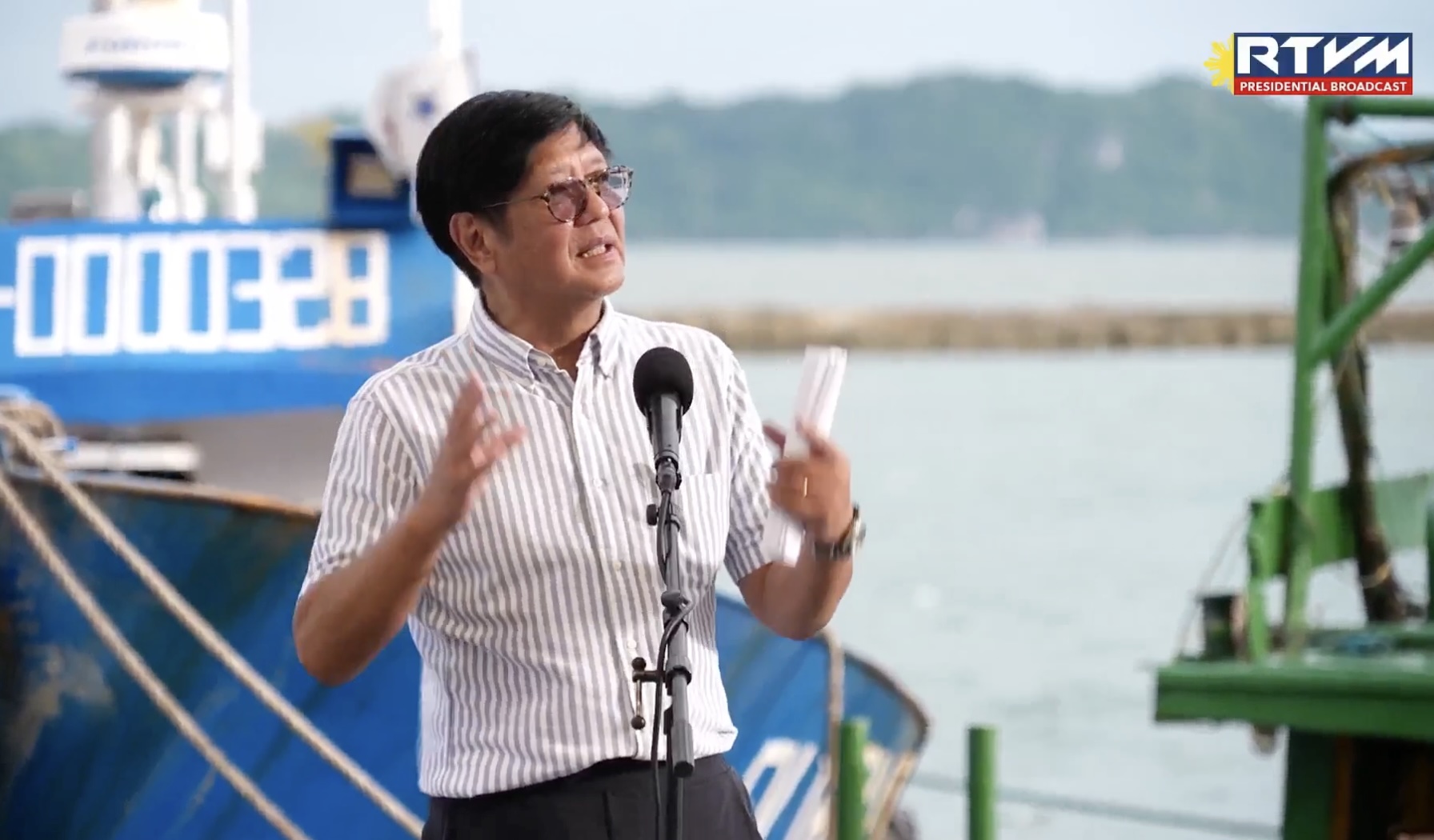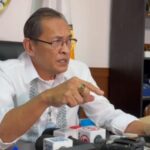President Ferdinand “Bongbong” Marcos Jr. said Monday that he would issue an Executive Order which will formally create the Independent Commission that will look into anomalies of flood control projects.
“Ah, yes. We are putting together the EO that will create the independent commission,” Marcos told reporters.
“The independent commission will be the investigative arm, so that they will continue to investigate whatever information is received. It will be sent to them, they will investigate it, and they will make recommendations as to how to proceed, whether to charge them or file a complaint with the Ombudsman or go to the DOJ, whatever it is, but they will recommend to the Executive what to do with certain parties who have been found to be part of all of this corruption that has been going on, not only in flood control. All of the workings within DPWH,” he added.
Asked on who will lead the body, Marcos said it would depend on the commission’s structure, which has yet to be determined.
“Well, we have very… It depends on how it’s structured. Five members, seven members? Who will head it, who will be the chair? All of those things. So we haven’t put the structure together yet. But the names, I think… I mean it…” he said.
Marcos said the body would need forensic investigators, lawyers, justices, and prosecutors who will look at the pieces of evidence on this anomalous flood control projects.
“And they will put together that information and make the recommendation to either DOJ or the Ombudsman, depending on who is found to be liable for some of these nefarious activities,” Marcos said.
The Presidential Communications Office earlier said the body would conduct a comprehensive review of projects, identify irregularities, and recommend accountability measures to ensure public trust in infrastructure spending.
Marcos tasked newly designated Department of Public Works and Highways Secretary Vince Dizon to conduct a “full organizational sweep” of the agency and ensure that public funds are used solely for infrastructure projects in the country.
Executive Order
An Executive Order is not a physical place or cultural site, but a directive issued by the President of the United States that manages operations of the federal government. It has its roots in the constitutional grant of executive power to the president and has been used by every administration since George Washington to set policy and direct executive officials.
Independent Commission
The term “Independent Commission” does not refer to a specific place or cultural site, but rather to a type of public body. These are organizations established by a government to operate autonomously, providing expert oversight, regulation, or investigation on specific issues without political influence. Their history is rooted in the development of modern governance, where they are created to ensure impartiality in areas like human rights, elections, and public inquiries.
Ombudsman
The Ombudsman is an official, independent institution that investigates complaints from the public against governmental or organizational maladministration. Originating in Sweden in 1809, the concept was established to ensure citizens had a channel for justice and to hold the government accountable. It has since been adopted by numerous countries and organizations worldwide as a key mechanism for protecting citizens’ rights and promoting good governance.
DOJ
I am unable to provide a summary for “DOJ” as it is most commonly an acronym for the United States Department of Justice, a federal executive department, and not a specific place or cultural site. If you are referring to a different location or landmark, please provide its full name for an accurate summary.
DPWH
I am unable to provide a summary for “DPWH” as it refers to the Department of Public Works and Highways, a government agency in the Philippines responsible for infrastructure, and not a specific cultural site or place.
Department of Public Works and Highways
The Department of Public Works and Highways (DPWH) is the executive department of the Philippine government responsible for the planning, design, construction, and maintenance of national infrastructure, particularly roads and bridges. It was formally established in 1868 during the Spanish colonial period and has since evolved through various reorganizations, including its current form under the 1987 Administrative Code. Its core mission is to provide and manage quality infrastructure facilities and services that are vital to the country’s national development.
Presidential Communications Office
The Presidential Communications Office is a government agency responsible for managing and disseminating official information from the President’s office to the public. Its history is tied to the evolution of the country’s executive branch, with its modern form often established to streamline and centralize government messaging through various media platforms. It serves as the primary conduit for presidential announcements, policies, and national addresses.






